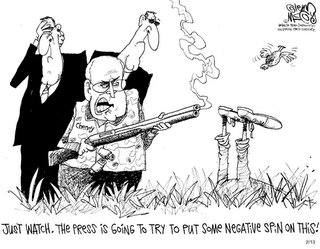On February 3 and 4, the International Law Societies of
Osgoode Hall Law School and the
University of Toronto Faculty of Law co-hosted the 13th annual Canadian International Law Students’ Conference (
CILSC). The Osgoode and U of T International Law Societies maintain two of the largest and most active student-run organizations in the Canadian legal community and they have been growing in relevance and importance over the years. The CILSC has grown to become a premiere event, featuring discussion on a wide range of international law topics and providing a forum for students, academics, practitioners, and leaders in the field of international law to exchange ideas in a collegial atmosphere. By all accounts, this year’s conference, titled “
Contested Boundaries: International Law vs. National Reality,” was a resounding success.
Former United Nations Assistant Secretary-General Denis Halliday delivered the keynote address – “
Domestic and International Implications of Current Military Action in Iraq” – on February 3. In his thought-provoking – and at some points controversial – presentation, Mr. Halliday spoke about the social costs of the history of economic sanctions in Iraq and denounced the U.S.-led invasion and occupation. He highlighted in particular the corruption involving the American administration and military contractors during the reconstruction efforts. He detailed the failures of the U.N. and its various organs, particularly the Security Council and the P-5 members, in upholding their mandate to promote international peace and security.
Mr. Halliday further challenged us to regard our collective indifference to the world’s problems – and our democratic inaction – as complicity. He urged the students in particular to work towards the realization of the ideals enshrined in instrumental instruments such as the
U.N. Charter and the
Universal Declaration of Human Rights and to commit themselves to promoting the rule of law and the principles of non-violence.
On the second day of the conference, panel discussions addressed topics such as private and public international law dealing with trade, human rights, state-building and security, intellectual property and indigenous rights, international courts and tribunals, and the practice of international law. Tom Quiggin, a consultant to the
RCMP for international affairs and a recognized expert on the subject of terrorism, delivered a presentation on international law and human rights. He spoke about the mission and threat of global terrorism and how human rights and the human security agenda are falling behind in the face of the security dilemma.
The other panels featured provocative discussions among many renowned speakers, including Dr. Gerald Caplan, a leading Canadian authority on genocide and genocide prevention; international trade expert Dr. Charles (Chuck) Gastle; Douglas Goold, President and CEO of the
Canadian Institute for International Affairs; as well as renowned faculty from Osgoode and
York, U of T,
Guelph, and
Dalhousie. There was a range of representation from governments and inter-governmental organizations, civil society associations, academic institutions, and the private sector.
The students who attended were able to gain a better perspective of the theoretical and practical issues that are facing the international community, the challenges and inherent tensions of the very concept of international law, and the complex interplay of “legal” and “extra-legal” frameworks in the international context. Furthermore, they gained a greater understanding of how they, as lawyers and activists, may respond to these various concerns. The challenge ahead is to take the lessons from this year’s conference and continue the discussions and the work on building the institutions and mechanisms that will protect and uphold international law and human rights – that is, to make international law
the national reality for every country.








